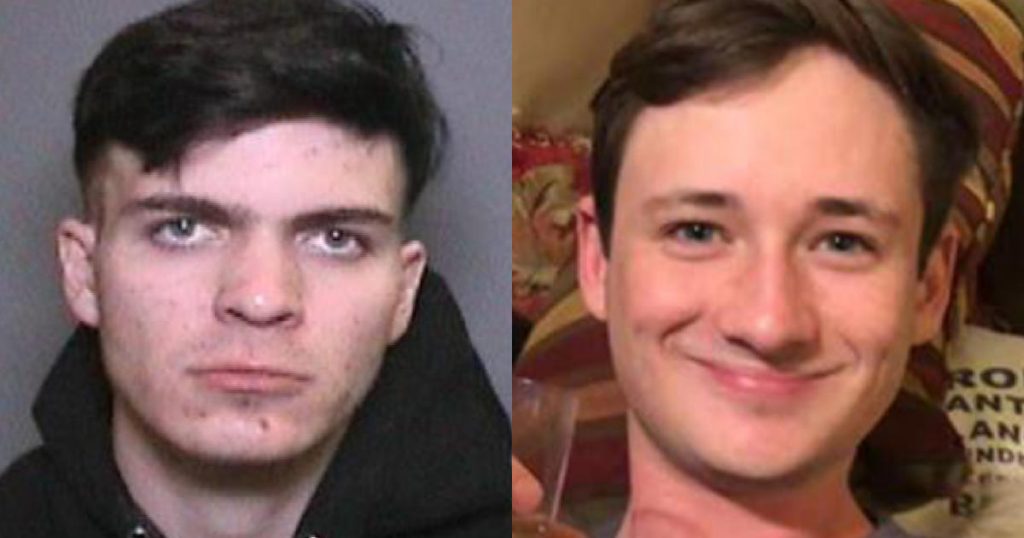Samuel Woodward, a 26-year-old man from Newport Beach, California, is expected to stand trial for the murder of University of Pennsylvania student Blaze Bernstein more than six years after the incident occurred. Bernstein, a 19-year-old gay, Jewish college sophomore, was stabbed to death by Woodward, who had previously attended the same high school as him in Orange County. Bernstein went missing after going out with Woodward to a park in Lake Forest, California, during winter break in January 2018. His body was later found buried at the park in a shallow grave, and Woodward was arrested two days later after DNA evidence linked him to the killing.
Woodward’s cellphone contained anti-gay, anti-semitic, and hate group materials, and he had expressed interest in joining the neo-Nazi group Atomwaffen Division, which advocated for white supremacy. Authorities found a folding knife with a bloodied blade in Woodward’s room, and he was charged with murder with an enhancement for a hate crime. At the time of his arrest, Woodward claimed that he became angry after Bernstein kissed him on the night he disappeared. Bernstein’s mother, Jeanne Bernstein, described her son’s death as devastating, and the case took years to go to trial due to questions about Woodward’s mental state and changes in defense attorneys.
Woodward, who has Asperger’s syndrome, a developmental disorder that affects social interactions, struggled with his own sexuality, according to his previous lawyer Ken Morrison. Morrison urged the public to withhold judgment until all evidence is presented in court and cautioned against believing the prosecution’s narrative. The Orange County district attorney’s office declined to comment on the case before trial. Opening statements in Woodward’s trial are scheduled for Tuesday, and he has pleaded not guilty to the charges against him. The case highlights the tragic loss of Blaze Bernstein and the impact of hate crimes on marginalized communities.
The trial brief outlines the events leading up to Bernstein’s murder, including his disappearance after going out with Woodward and the discovery of his body buried at the park. Authorities found damning evidence on Woodward’s cellphone and in his journal, which described threats he had made to gay people online. Woodward’s interest in a white supremacist group and his possession of a bloodied knife in his room further incriminate him in the case. The complexity of the trial, with questions about Woodward’s mental health and motivations, adds layers to the prosecution’s case against him.
As the trial begins, the public is urged to respect the judicial process and allow the evidence to speak for itself. Jeanne Bernstein’s grief over the loss of her son is palpable, and the impact of hate crimes on marginalized communities is highlighted through this case. Woodward’s actions, motivated by hate and prejudice, have had far-reaching consequences, and his trial will determine the accountability for Bernstein’s death. The outcome of the trial will bring closure to Bernstein’s family and friends, as they continue to mourn the loss of a bright young man who was taken too soon.


